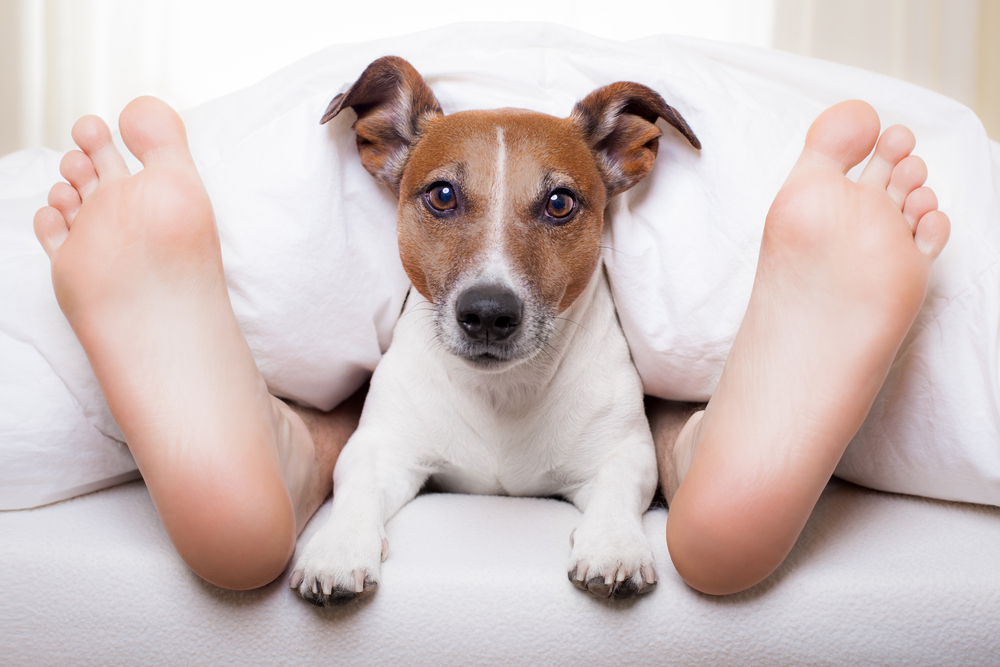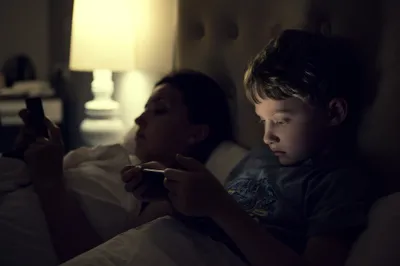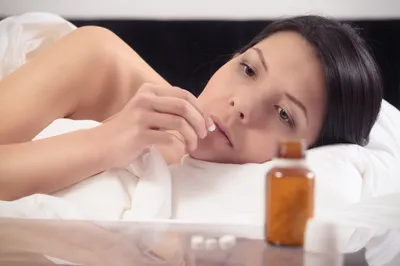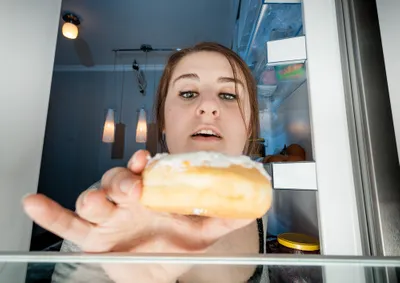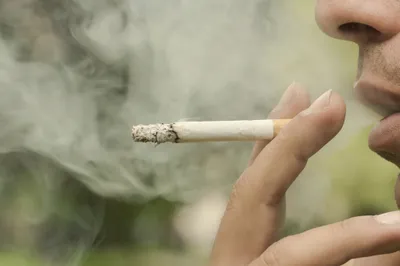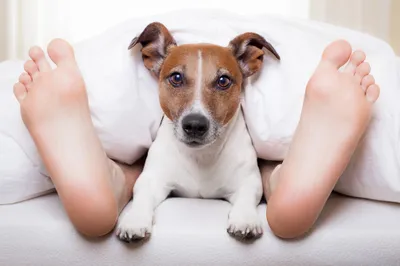Having trouble getting to sleep at night? Chances are you’re doing something that’s preventing you from getting a full night’s rest just before you “hit the hay.” That’s a major problem. Many studies, including this research published by the Huffington Post, have shown that sleep deprivation can result in obesity while increasing one’s risk of stroke, cancer, diabetes, and even heart disease.
That’s why it’s important to avoid doing these twelve things that can keep you from getting at least seven to eight hours of sleep each night…
1. Checking Your Smartphone, Tablet, Computer or E-Reader
Many people struggle to put their smartphones, tablets, and other electronic devices away for the night. And with friends, family, and co-workers constantly sending us emails, text messages, and social media posts, it’s easy to see why that can be difficult. But it’s important to stow these devices away at least one hour before bedtime.
Why? Because studies from the UCLA School of Medicine show that the bright light emitted by these devices is very similar to sunlight. In effect, this convinces our brain that it’s still daytime, thereby preventing the production of melatonin and keeping our minds going. That makes it very difficult for us to get to sleep.
2. Taking Antidepressants
Many psychiatrists help their patients deal with depression through medication, but studies have shown that taking some antidepressants can make it very difficult for patients to get to sleep. This is because many antidepressant medications work by changing how the brain functions, including the production of norepinephrine, dopamine, and serotonin—each of which have been shown to impact sleep schedules.
That can make it difficult for a person’s brain to determine when sleep is required, preventing the patient from getting a full night’s rest. If you’re taking an antidepressant and having trouble getting to sleep at night, talk to your doctor about the issue immediately.
3. Starting an Electronic Conversation
The key to getting enough sleep is allowing your mind to rest. But it may not rest properly if you begin a conversation with a friend just before heading to bed for the night, according to the National Sleep Foundation.
That’s because initiating a conversation gets your mind revved up, even if the other person involved in the conversation doesn’t reply. In fact, not receiving a reply can be even more disturbing to sleep because one may be left wondering what distracted the other person. That’s why sleep experts suggest stopping all electronic conversations well before heading to bed.
4. Drinking Coffee
Coffee is one of the most popular drinks in the world. But java contains caffeine, a legal drug and stimulant that can affect our energy level, heart rate, and feelings of wakefulness. That means it can also temporarily stop us from producing sleep-inducing chemicals, making it very difficult for our brains to shut down at the end of a long day.
That’s why so many people love coffee in the morning—it helps us feel energized and ready to confront the day’s activities. But it’s also why experts, like researchers from the National Sleep Foundation, recommend avoiding coffee close to bedtime.
5. Drinking Tea
It seems straightforward that avoiding drinking coffee right before bed can help us sleep, but what about tea? Does it have the same impact on our sleep schedules? Many experts, like those at the London Sleep Center, say that yes, tea can also make it difficult for people to get a full night’s rest.
That’s because most “true” tea comes from the tea tree plant, known as camellia sinensis, which contains caffeine, the same drug found in coffee that’s known for increasing heart rate, energy levels. Just like coffee, there are decaffeinated teas. But in both cases they can contain traces of caffeine that may make it difficult to sleep. That’s why it’s important to find a tea that explicitly notes that it will help, rather than hinder, your attempt to sleep at night.
6. Eating Chocolate
Chocolate, like coffee and tea, all contain caffeine, a powerful drug that can make it difficult for our brains to shut down and go to sleep. The effects vary by type of chocolate. For example, a 1.5-ounce bar of Hershey’s milk chocolate contains about nine milligrams of caffeine—that’s roughly three times the amount of caffeine found in decaffeinated coffee.
For most people, that won’t prevent sleep. But a dark chocolate Hershey’s bar is a different story—containing 30-milligrams of caffeine—making it only slightly less potent than a cup of brewed tea. According to this New York Times article, chocolate also contains theobromine, which raises our heart rate and can lead to sleeplessness.
7. Eating Spicy or Junk Foods
Chances are strong that you’ve felt a burning or uncomfortable feeling in your gut after eating spicy or fatty foods. While this can make things uncomfortable after lunch or dinner, it can also prevent you from getting to sleep later in the evening.
But that’s not all. Studies, including research published by the International Journal of Psychophysiology, have shown that eating spicy foods can raise body temperatures, making it more difficult for our bodies to rest. As for junk foods—from ice cream to hamburgers—they may cause our brains to react in a similar way to nightmares, resulting in fitful, uncomfortable sleeping. That’s why sleep experts recommend that you avoid eating anything, let alone spicy or fatty foods, in the two to three hours prior to bedtime.
8. Drinking Alcoholic Beverages
A stiff drink can relax the nerves and make it easier to get to sleep. But it’s short-term gain for long-term pain; several studies have shown that drinking before bed can lead to restlessness later in the night. Research from WebMD reveals that, while alcohol can help us get to sleep, it typically comes with a “rebound” effect that results in us waking up and then struggling to return to sleep.
Studies have also shown that drinking booze before bed can lead to snoring, night sweats, nightmares, and headaches. Of course, drinking excessively can also lead to a rough morning, which is only made worse if you’ve tossed and turned in bed for several hours.
9. Smoking Cigarettes or Cigars
Many smokers try to get in one last cigarette before tucking in for the night. But it’s a bad idea, as nicotine—which is found in most tobacco-based cigarettes—has been shown to disrupt sleep. That’s because nicotine is a stimulant (much like caffeine) and can make it harder for the brain to enter sleep mode.
Worse still, smoking can lead to a disruption of basic sleep patterns, meaning that if you actually do get to sleep you won’t have a particularly soothing rest. In fact, sleep experts, like board-certified neurology sleep medicine specialist, Dr. Brandon Peters, have shown that smokers take longer to get to sleep and experience a less deep sleep than people who don’t smoke.
10. Exercise
Sleep is part of a complex process. It can’t be initiated like flipping a switch. Your body needs to gradually enter rest mode, which is why it’s a bad idea to stimulate the body with exercise right before bedtime. According to Dr. Stuart Quan of Harvard Medical School, it’s important to avoid vigorous physical activity right before attempting to go to sleep. “…Adrenaline is high, their brain is active, and it’s difficult to wind down,” says Dr. Quan of people who tend to work out late at night.
Dr. Quan and many other sleep experts recommend people end their workout at least a few hours before tucking in for the night. That will allow your body temperature to cool down and your heart rate to relax, making it easier to fall asleep.
11. Sleep With Your Pet
We all love our pets, but new research shows that sleeping with them can result in a lousy night’s sleep. According to a study presented at the 2014 annual meeting of the Associated Professional Sleep Societies, nearly one in three pet owners who slept with their animals woke up in the night because of their pet’s activities.
And that’s not all! Of those people who regularly slept with their pets, nearly two in three had poorer sleep quality than those who slept without animals in the bed. Of course, there were some study participants who said they got a better sleep when their pets were nearby—so it may require lots of soul searching before you figure out the right choice for you.
12. Have an Argument
It’s not just about preserving your most important relationships: going to bed angry can prevent you from getting a good night’s sleep. In fact, a recent study by University of Massachusetts researchers shows that going to bed feeling negative emotions—from having a fight to experiencing some kind of trauma—can disrupt sleep over multiple nights.
That’s because the brain focuses on, and even obsesses over, the sensitive issue every time it’s thought of, preventing our brains from entering sleep mode as a kind of defense mechanism. The study’s authors suggest that couples resolve an argument—or anything causing negative emotions—before going to sleep. That way they can begin the process of moving forward and won’t see other sleeps disturbed by the issue.
